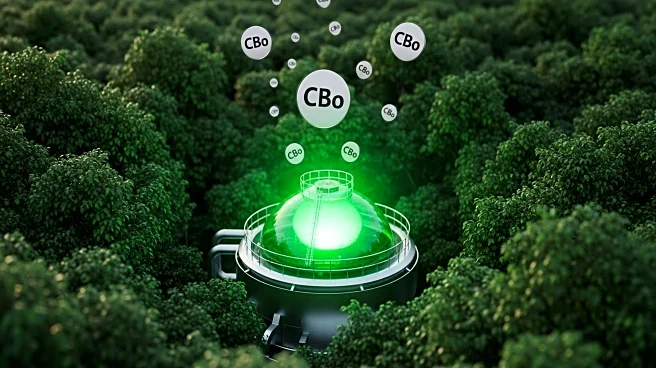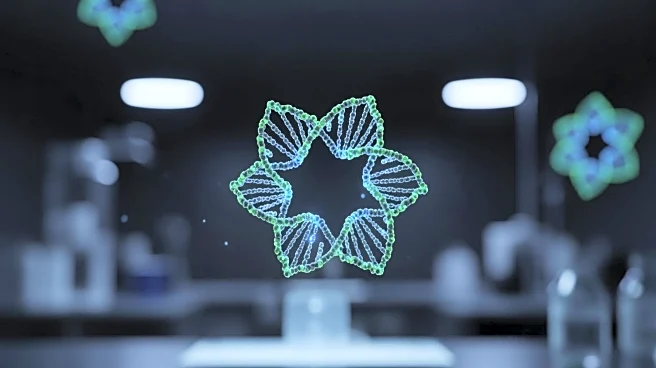What's Happening?
Terraton, a company focused on biochar technology, has raised $11.5 million in a seed funding round to expand its 'business-in-a-box' approach to biochar project development. The funding was led by Lowercarbon Capital and Gigascale Capital, with participation from ANA Holdings' ANA Future Frontier Fund and East Japan Railway Company's Takanawa Gateway Global Co-Benefits Fund, along with angel investors such as Google's Jeff Dean and OpenAI board member Bret Taylor. Terraton aims to replicate the franchise model used by McDonald's to streamline the establishment of biochar facilities, which convert agricultural waste into carbon-sequestering fertilizer. The company plans to develop a SaaS component to manage these facilities, measure and verify carbon credits, and sell them to large corporations. Terraton has already established two facilities in Africa, which are expected to remove 20,000 metric tons of carbon dioxide annually.
Why It's Important?
The expansion of biochar facilities by Terraton is significant for the carbon credit market and sustainable agriculture. Biochar technology offers a reliable method for carbon sequestration, which is crucial for companies seeking to offset their carbon footprints. The involvement of major investors and tech leaders underscores the growing interest in sustainable solutions and the potential profitability of biochar. By adopting a franchise model, Terraton aims to overcome supply constraints and meet the increasing demand from large buyers like Microsoft and Google. This development could lead to more widespread adoption of biochar, enhancing soil health and contributing to global carbon reduction efforts.
What's Next?
Terraton plans to continue building biochar facilities near sources of agricultural waste to minimize transportation costs and maximize efficiency. The company is focused on expanding its operations and replicating successful models across different regions. As the demand for carbon credits grows, Terraton's approach could attract more partners and investors, potentially leading to a significant increase in biochar production capacity. The success of this model may encourage other companies to explore similar franchise-based approaches in the carbon removal sector.
Beyond the Headlines
The franchise model for biochar facilities presents ethical and cultural implications, particularly in regions where local businesses are involved. By fostering local ownership, Terraton promotes community engagement and economic empowerment. However, the reliance on agricultural waste sources raises questions about the sustainability of supply chains and the impact on local farming practices. Long-term, the success of biochar technology could influence agricultural policies and encourage more sustainable farming methods.









